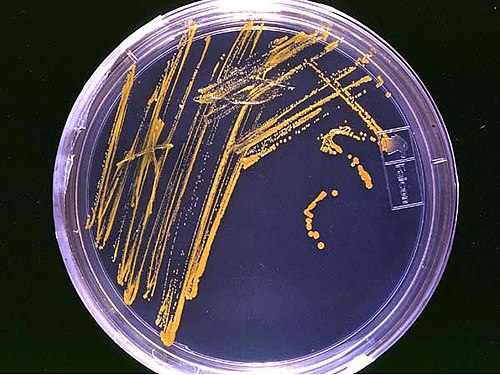Cellulosenoun
A complex carbohydrate that forms the main constituent of the cell wall in most plants and is important in the manufacture of numerous products, such as paper, textiles, pharmaceuticals, and explosives.
Cellulosenoun
(organic compound) A polysaccharide containing many glucose units in parallel chains.
Celluloseadjective
Consisting of, or containing, cells.
Celluloseadjective
Consisting of, or containing, cells.
Cellulosenoun
The substance which constitutes the essential part of the solid framework of plants, of ordinary wood, cotton, linen, paper, etc. It is also found to a slight extent in certain animals, as the tunicates. It is a carbohydrate, (C6H10O5)n, isomeric with starch, and is convertible into starches and sugars by the action of heat and acids. When pure, it is a white amorphous mass. See Starch, Granulose, Lignin.
Cellulosenoun
a polysaccharide that is the chief constituent of all plant tissues and fibers
Cellulose
Cellulose is an organic compound with the formula (C6H10O5)n, a polysaccharide consisting of a linear chain of several hundred to many thousands of β(1→4) linked D-glucose units. Cellulose is an important structural component of the primary cell wall of green plants, many forms of algae and the oomycetes.
Hemicellulosenoun
(carbohydrate) A mixture of several plant polysaccharides, of smaller molecular weight than cellulose, that are soluble in dilute alkali; they are involved in the manufacture of paper, and are used in the production of furfural and ethanol.
Hemicellulose
A hemicellulose (also known as polyose) is one of a number of heteropolymer (matrix polysaccharides), such as arabinoxylans, present along with cellulose in almost all terrestrial plant cell walls. While cellulose is crystalline, strong, and resistant to hydrolysis, hemicelluloses have random, amorphous structure with little strength.






